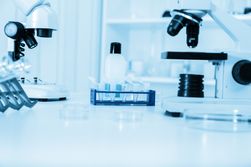4 Frequently Asked Questions About Paternity Testing

When a child is born without a clear indication of who the father is, it can open up a whole spread of issues for the mother and newborn. From child support to custody and benefits gained from biological relationships, identifying a baby’s father can support their future and offer them insight into their cultural and medical history. A paternity test can help establish a child’s dad in these circumstances. Here is a little insight into a few questions you may have about this process.
Common Questions About Paternity Testing
Are there different types of paternity tests?
There are both legal and non-legal types of paternity tests. The primary difference between the two is how the test is administered. For a legal paternity test, there must be an impartial party present to collect the sample, such as a physician. This step helps avoid tampering to skew the results of the test. A parent can then use this type of analysis in court for child support or custody cases. Non-legal paternity tests, also known as “peace of mind” tests, are ones you can take at home. They collect data solely for the parent or child’s benefit, not for legal action.
How does paternity testing work?
 Every human being inherits half of their DNA from each biological parent, meaning that it’s possible to compare DNA profiles between a child and their father. Using genetic samples from both the child and the potential father, a lab will compare their DNA profiles side-by-side. If the data doesn’t match, then it means that the man in question is not the father. Confirming a child’s biological father can be crucial to their medical record as well as their well-being, as DNA markers can signal their family medical history and the risk factors that come with it.
Every human being inherits half of their DNA from each biological parent, meaning that it’s possible to compare DNA profiles between a child and their father. Using genetic samples from both the child and the potential father, a lab will compare their DNA profiles side-by-side. If the data doesn’t match, then it means that the man in question is not the father. Confirming a child’s biological father can be crucial to their medical record as well as their well-being, as DNA markers can signal their family medical history and the risk factors that come with it.
Does the mother have to give a sample?
A mother’s sample is not required for a DNA test, but it can significantly aid the paternity test’s accuracy. Considering that half of a child’s DNA comes from their mother, her sample can help concretely identify which DNA came from her and which came from the father. Also, some testing can result in anomalies like a mutated allele, which can further complicate the process and will require a mother’s sample to clarify anyways. Essentially, a sample from both parents for a paternity test guarantees a more conclusive result.
How long does a paternity test take?
Typically, a lab will process a paternity test in two to three days from the time the samples are taken. In the case of adding a name to a birth certificate, for example, these results can be expedited. You can address any timing concerns at an appointment to collect samples, but it will likely cost more to get a quick turn around for your results.
If you need the clarification of a paternity test for yourself or your child, US Compliance Consortium Inc can help. Their team can conduct DNA testing with 99% accuracy in as little as three business days or less. If you’re in a hurry, they even offer same-day paternity test results that are admissible in court. For more information about this Phoenix, AZ, based laboratory testing company, give them a call today at (602) 765-2200 or visit their website.
About the Business
Have a question? Ask the experts!
Send your question

